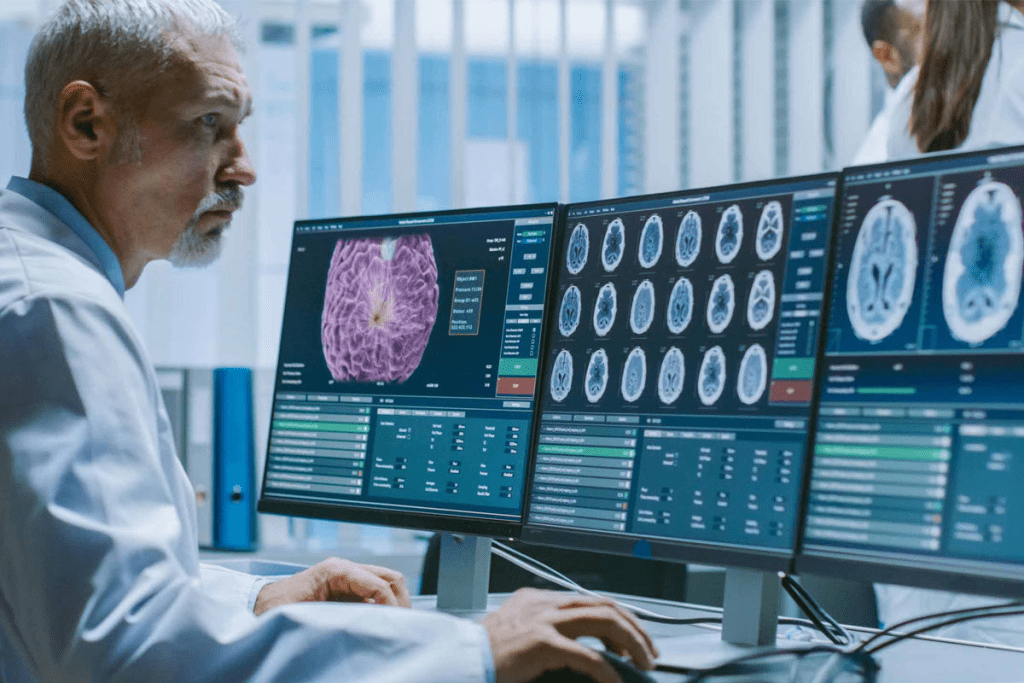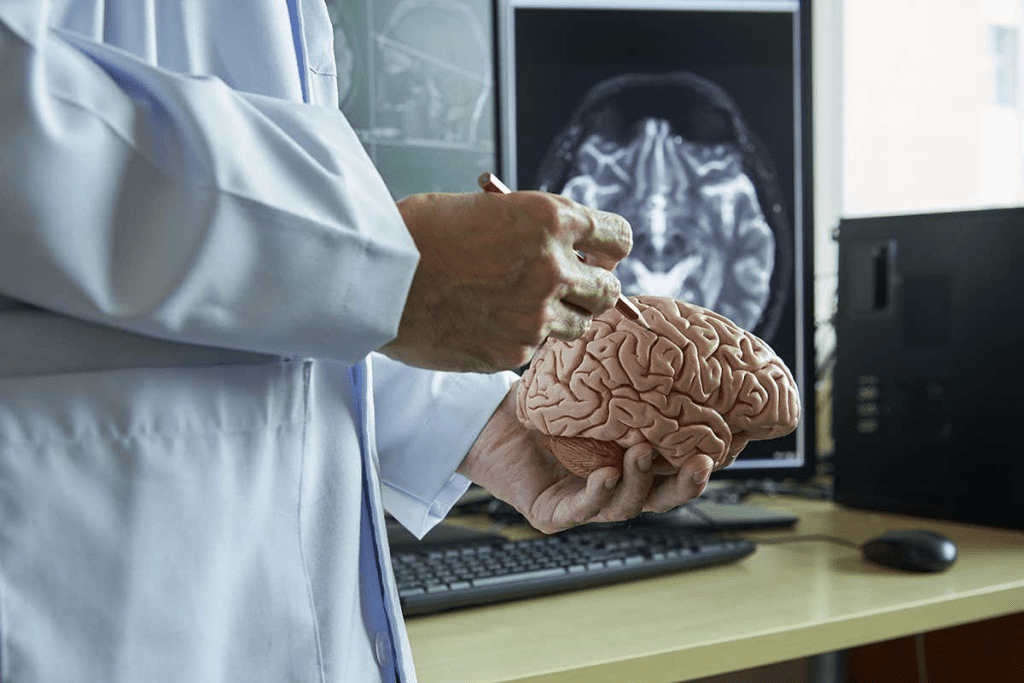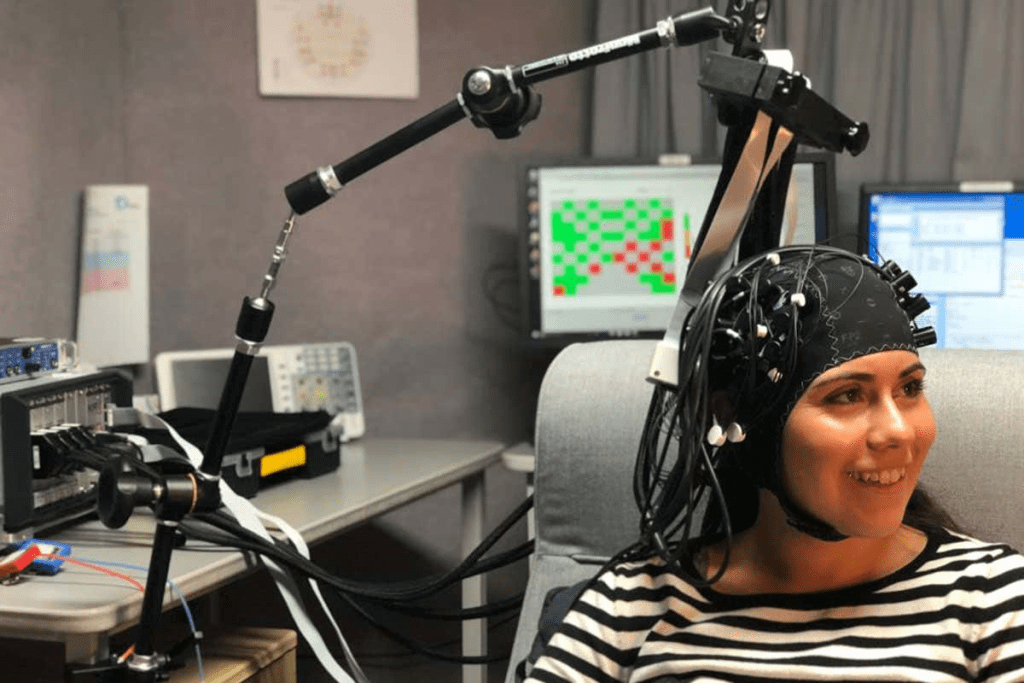Last Updated on November 24, 2025 by

Neurophysiologists are key in finding and diagnosing issues with the nervous system. They know how to check the electrical signals in the nervous system. This helps them spot complex problems. What do neurophysiologists diagnose? Understand what is a neurologist and their crucial, powerful role in diagnosing complex disorders of the nervous system.
They deal with everything from carpal tunnel syndrome to epilepsy. Using the latest tools, they find and diagnose complex nervous system issues. Their skills help identify neurological problems that affect many people around the world.
As experts in neurophysiology, they run tests and figure out what’s wrong with the nervous system. They are a big help in managing these health issues.
Neurologists and neurophysiologists are both key in neurology, but they have different roles. A neurologist is a doctor who treats nervous system disorders. On the other hand, a neurophysiologist focuses on the nervous system’s function. They use tests to diagnose conditions.

Neurologists get a lot of medical training. They check patients’ histories, do physical exams, and order tests. To learn more about their role, it’s important to know they specialize in neurophysiological techniques.
The main differences in their training and specialization are:
Clinical neurophysiology is a part of neurology that uses tests to diagnose and monitor neurological disorders. Clinical neurophysiologists are key in diagnosing conditions like epilepsy and nerve damage. They interpret tests like EEGs and EMGs to help plan treatments.
Their role includes:
Surgical neurophysiologists work with neurosurgeons during surgeries. They monitor the nervous system’s function in real-time. This is important during surgeries that could risk neurological damage.
Their specialized function is:
In neurophysiology, advanced diagnostic methods are key for patient care and treatment planning. We use sophisticated tools to check the nervous system’s function accurately.
Electroencephalography (EEG) is a vital tool for checking the brain’s electrical activity. We place electrodes on the scalp to record brain signals. This helps us diagnose conditions like epilepsy and track seizures.
EEG is essential for diagnosing and managing epilepsy. It spots abnormal electrical discharges that might show seizure activity. The National Institute of Neurological Disorders says an EEG is a key test for epilepsy.

Electromyography (EMG) and nerve conduction studies (NCS) check muscle and nerve function. EMG uses small electrodes in muscles to record electrical activity. NCS measures nerve signal speed and strength. These tests help diagnose conditions like muscular dystrophy and peripheral neuropathy.
By looking at EMG and NCS data, we can find out about nerve or muscle problems. This guides treatment and rehabilitation plans.
Polysomnography, or a sleep study, records physiological activities during sleep. It tracks brain waves, muscle activity, and heart rate to diagnose sleep disorders like sleep apnea and narcolepsy. It gives detailed info on sleep patterns, helping us plan effective treatments.
Experts say “Polysomnography is the gold standard for diagnosing sleep disorders.” It’s very important in sleep medicine.
Diagnosing peripheral nerve disorders is key in neurophysiology. It involves various tests and techniques. These disorders can greatly affect a person’s life, making a quick and correct diagnosis vital for treatment.
Carpal tunnel syndrome is a common issue. It happens when the median nerve gets compressed at the wrist. Neurophysiologists use nerve conduction studies (NCS) and electromyography (EMG) to spot it and other entrapment neuropathies. These tests show how severe the nerve damage is and help decide treatment.
“Early treatment of carpal tunnel syndrome can stop long-term nerve damage,” says a neurophysiology expert. Quick action can ease symptoms and help nerves work normally again.
Diabetic neuropathy is a diabetes complication of diabetes. It’s caused by high blood sugar damaging nerves. Neurophysiologists use NCS, EMG, and clinical checks to diagnose it. These tests show how much nerve damage there is and track the condition’s progress.
Guillain-Barré Syndrome (GBS) is an autoimmune disorder. It makes the body attack nerves, causing muscle weakness and, in severe cases, paralysis. Neurophysiologists are key in diagnosing GBS with NCS and EMG. These tests find the nerve issues typical of this condition.
Chronic Inflammatory Demyelinating Polyneuropathy (CIDP) is another autoimmune disorder. It causes progressive weakness and sensory loss. Neurophysiologists use the same tests to diagnose and manage CIDP.
Traumatic nerve injuries can happen from accidents or falls. Neurophysiologists use NCS and EMG to check the damage and predict recovery. Getting the diagnosis right is key to treatment plans, including surgery.
Assessing traumatic nerve injuries needs a detailed clinical check and neurophysiological tests. This thorough approach helps neurophysiologists create a treatment plan that fits the individual’s needs.
Neurophysiologists are key in diagnosing and managing central nervous system disorders. These disorders affect millions worldwide. They can greatly impact a person’s life, making accurate diagnosis and care vital.
Epilepsy is a condition where seizures often happen. Electroencephalography (EEG) is a key tool for diagnosing it. EEG helps find abnormal brain activity.
Seizures can vary from mild to severe. Knowing the type of seizure is important for diagnosis. Video-EEG monitoring helps capture seizures and match them with EEG findings.
Sleep disorders like narcolepsy, sleep apnea, and parasomnias affect sleep quality. Polysomnography (PSG) and Multiple Sleep Latency Tests (MSLT) help diagnose these. These tests check sleep patterns and find abnormalities.
Narcolepsy causes daytime sleepiness and cataplexy. Sleep apnea involves breathing pauses during sleep. Parasomnias, like sleepwalking, happen during deep sleep. A full sleep evaluation is needed for an accurate diagnosis.
Multiple sclerosis (MS) is a chronic disease that affects the central nervous system. Evoked potentials help assess the function of brain pathways. Imaging studies like MRI also support diagnosis.
MS needs careful monitoring and management. Neurophysiologists play a big role in diagnosing and managing these conditions. This improves patient outcomes.
Movement disorders like Parkinson’s Disease and essential tremor affect daily life. Electromyography (EMG) and nerve studies help diagnose and manage them. These tests check muscle and nerve function.
Parkinson’s Disease affects movement, balance, and coordination. Essential tremor causes tremors during voluntary movements. Accurate diagnosis and management require a thorough neurological evaluation.
We’ve seen how important neurophysiologists are in diagnosing and treating complex brain conditions. Their work is key in the healthcare world. They focus on the electrical signals in the nervous system, which is different from neurologists.
Neurophysiologists play a big part in treating patients with brain disorders. They use tools like EEG and EMG to find the right diagnosis. Their work helps the whole healthcare team and improves patient care.
If you’re thinking about a career in this field, knowing about neurophysiologist salaries and requirements is helpful. As medical technology gets better, neurophysiologists will keep being essential for top-notch patient care.
Neurophysiologists are key in checking and diagnosing nervous system issues. They use advanced tests to find and identify neurological problems quickly and accurately.
Neurologists are doctors who treat and diagnose brain and nervous system diseases. Neurophysiologists, on the other hand, focus on diagnosing these disorders with tests like EEG and EMG.
Clinical neurophysiology studies the nervous system’s function. It helps in diagnosing and managing conditions like epilepsy, sleep disorders, and movement disorders in patient care.
Surgical neurophysiologists are vital in the operating room. They monitor the nervous system during surgery. This helps prevent damage and ensures the best results for patients.
Neurophysiologists use tests like EEG, EMG, nerve conduction studies, and polysomnography. These tests help diagnose various neurological conditions by measuring the nervous system’s electrical activity.
EEG measures the brain’s electrical activity. It helps diagnose conditions like epilepsy, seizures, and encephalopathy.
EMG and nerve conduction studies check the function of nerves and muscles. They help diagnose issues like carpal tunnel syndrome, diabetic neuropathy, and nerve injuries.
Neurophysiologists use polysomnography and other sleep studies to diagnose sleep disorders. They develop treatment plans for conditions like narcolepsy, sleep apnea, and parasomnias.
Neurophysiologists are key in diagnosing and managing movement disorders. They use various tests and treatments to help patients with Parkinson’s disease and essential tremor.
Neurophysiologists use tests like EEG and EMG to diagnose and manage multiple sclerosis and other demyelinating diseases. They develop treatment plans to slow disease progression and manage symptoms.
Subscribe to our e-newsletter to stay informed about the latest innovations in the world of health and exclusive offers!